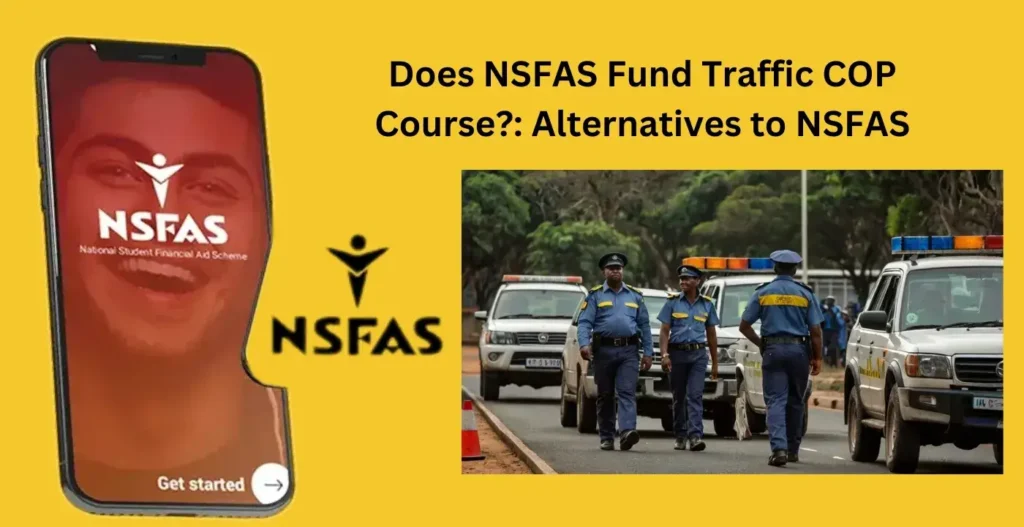Aspiring to become a Traffic Officer in South Africa but wondering, “Does NSFAS Fund Traffic COP Course?” Unfortunately, the National Student Financial Aid Scheme (NSFAS) does not provide funding for Traffic COP courses or Traffic Officer training programs. These specialized courses fall outside NSFAS’s scope, which primarily covers qualifications from public universities and TVET colleges. If you’re looking for NSFAS funding, it’s important to note that Traffic COP courses are not eligible under their current funding criteria.
Table of Contents
Why NSFAS Doesn’t Cover Traffic Officer Courses
Traffic Officer training is considered vocational education offered through specialized Traffic Colleges rather than traditional academic institutions. Since these programs don’t typically align with NSFAS-eligible qualifications, students must explore alternative funding options.
Alternative Funding Sources for Traffic Officer Training
If you’re determined to pursue a career in traffic law enforcement, consider these funding options:
- Provincial Traffic Departments often provide bursaries or scholarships for promising candidates, sometimes including stipends during training
- SETA Learnerships in Road Traffic Management combine practical experience with theoretical knowledge in fully-funded programs
- Private financial institutions offer specialized student loans for vocational training
- Corporate sponsorships from companies interested in supporting traffic law enforcement careers (usually with post-graduation work commitments)
Leading Traffic Training Institutions
Several accredited institutions specialize in Traffic Officer training across South Africa:
- Lyceum College
- Nelson Mandela Bay Traffic Training College
- Boekenhoutkloof Traffic Training College
- KZN Traffic Training College
- Lengau Traffic Training College
- Gene Louw Traffic Training College
- Durban and Johannesburg Metro Police Department Academies
Typical Traffic Officer Training Curriculum
Traffic Officer training programs generally include comprehensive coursework in:
- Road Traffic Management
- Law Enforcement Techniques
- Defensive Driving
- Communication Skills
- Vehicle Inspection Procedures
Career Benefits in Traffic Law Enforcement
Despite the funding challenges, a career as a Traffic Officer offers significant advantages:
- Stable government employment
- Clear advancement pathways
- Meaningful community impact through improved road safety
- Contributing to law enforcement and public order
Program Duration and Requirements
Traffic Officer training typically requires a 12-month commitment, combining both theoretical knowledge and practical skills development at specialized Traffic Colleges affiliated with the Road Traffic Management Corporation.
While NSFAS funding isn’t available for these programs, with determination and research into alternative financial support options, your goal of becoming a Traffic Officer remains achievable.

